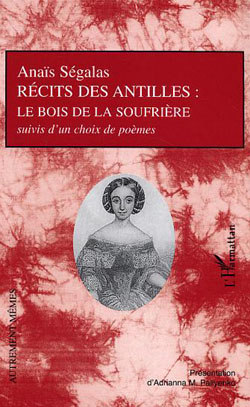 |
|
| The French Antilles captured the imagination of 19th-century author Anaïs Ségalas (1814-1893), whose mother, a white Creole, hailed from modern-day Haiti. Her poetic expression from Les Algériennes (1831) to La Femme (1847), coinciding with turning points in France's colonial history, favored the abolition of slavery but left undisturbed the idea of a superior race. This modern critical edition of Segalas's novel that saw eight printings, the first concurrent with the 1884 call for French colonial expansion into Africa and Asia, brings to light a striking reversal in her politics that mirrored the troubling racist culture of late-19th-century France. Set in Guadeloupe and Martinique, Ségalas's narrative of deep tensions between the races measures little progress in the 'new world' long after the emancipation, where the shadow of slavery and inherited prejudices still haunted the Creole population. |  |
Professor A. Paliyenko
Department of French and Italian Colby College ampaliye@colby.edu |
|